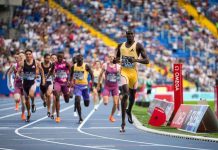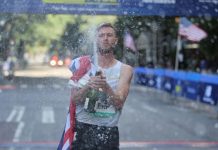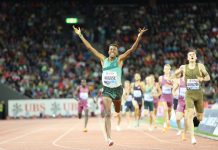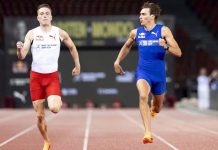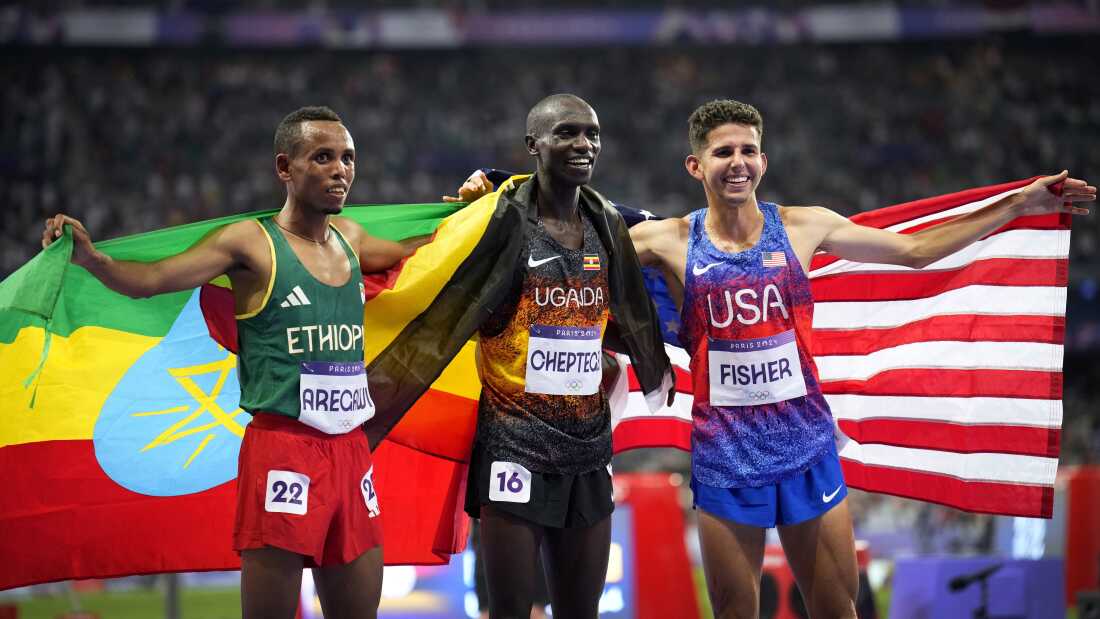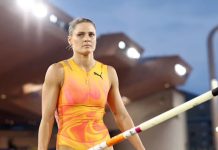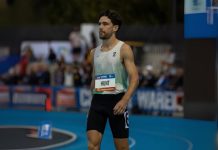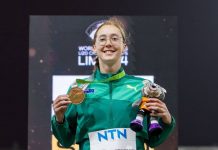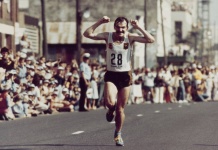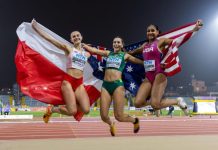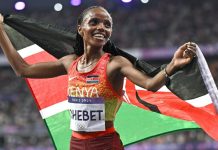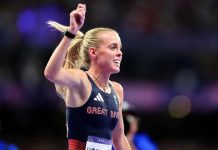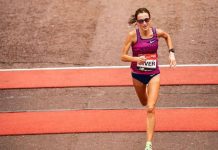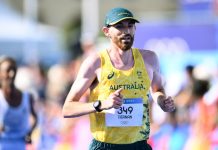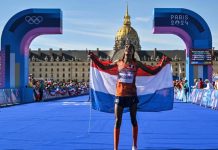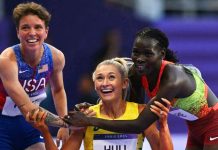How good is Joshua Cheptegei. How brutal is the repechage system.
These were two questions to be ponder after the first day of Paris Olympic track and field competition in the Stade De France.
The answers. Cheptegei is very, very (insert extra ‘veries’ as per personal preference) good. Three times a world champion at 10,000 metres, an Olympic champion at 5000 metres and as of 2 August, 2024, Olympic champion at 10,000 metres after the deepest 10,000 ever run at championships or any other level.
No fewer than 13 men broke 27 minutes in the Olympic final. Twelve of them gave futile chase behind Cheptegei over the final 500 metres but not one could not get onto his heels, much less his shoulder. In the Mo Farah style of thrashing opponents by centimetres, Uganda’s great champion won unchallenged by a couple of metres.
It’s a tough way to win a gold medal, driven on by the hot breath of the chasers. But when it comes to degrees of toughness, the system of sprint and middle-distance repechages applying in Paris has got to be right up there. For Australians, anyway: six middle-distance athletes, all with genuine hopes of making finals, raced on day one. Five of them, all three men in the 1500, two of the three women in the 800, got the come-back-and-try-again-tomorrow ‘invitation’ to the repechage. The sixth, Claudia Hollingsworth – who will go on from Paris to compete in the world U20 championships, incidentally – ran brilliantly to finish second of the three automatic qualifiers in her heat. You’d say it was the race of her young life – except she might produce a better one in the semi-final.
There are three different systems of advancement from repechage to semis for the six events – 200, 400, 800 and 1500, 100/110 hurdles and 400 hurdles – affected. For the 200, 400 and 800 it’s four repechage heats with only the winner going through, along with the next two fastest; the 1500 it’s two heats, first three in each; the hurdles, three heats, first two through.
This in a sport trying to make itself simpler to understand? Amazing.
That might be amazing bad. Amazing good was Joshua Cheptegei. His narrow victory margin has already been mentioned. He has now won four global titles – three worlds, one Olympic – by a combined total of 1.97 seconds. Not the unanswerable kick, nor the relenting pace no-one else can match. You can’t say he doesn’t give his rivals every chance.
Joshua Cheptegei’s race plan in Paris was exactly the same as his plan in Budapest last year. Always prominent after half-way was reached in a tick over 13:23, he surged to the lead off the turn into the main straight with 500 metres to go, opening a small gap.
Match me if you can, was Cheptegei’s throwdown. Simply, none could. Mo Ahmed, Grant Fisher, Yomif Kejelcha, defending champion Selemon Barega, Bernard Kibet and Cheptegei’s teammate Jacob Kiplimo all pressed to no avail. Berihu Aregawi came late, racing past the tiring challengers in the final 50 metres. But it was too late.
Cheptegei crossed the line in 26:43.14, slicing 18 seconds off the Olympic record set by Kenenisa Bekele in his second Olympic victory in Beijing in 2008. Aregawi was second in 26:43.44, Fisher third in 27:43.46. Less than a second covered the first six finishers.
Thirteen men broke 27 minutes. Even in an evenly paced race, this was extraordinary. Certainly there was some intermittent surging, but the two halves went by in 13:23 and 13:20. Sixty-four second laps were the order of the day until the final 800 in 1:55. But this was an Olympic final, not some carefully organised qualifier chase in California (eight sub-27) or the Ethiopian trial in Spain were five men ran faster than Cheptegei’s winning time.
Cheptegei also broke the stadium record, a mundane statistic other than the fact it was run by Kenenisa Bekele in defeating Haile Gebrselassie (among others) to win the 2003 world championship final. Bekele ran 26:49.57 with a huge negative split: the first 5000 took 13:52.33, the second an extraordinary 12:57.24. A worthy record to break, then.
The gold medal brought Cheptegei the one honour he lacked until now at 10,000. He has the world record; he has three world championship victories. Now, Cheptegei has added the Olympic record and gold medal to his laurels.
Cheptegei’s ambition has never been in doubt since his epic fail in the final lap of the ‘home’ world cross-country championships in Kampala in 2017. His foolhardy charge into the lead in punishing heat and humidity fell apart then, but his vision remained undiminished. When he rectified that error in Aarhus two years later (having beaten Mo Ahmed to win both Commonwealth Games distances in 2018), he openly stated he wanted to follow Mo Farah in dominating the track distances.
While not matching Farah’s 10 global distance gold medals – including doubles at the 2012 and 2016 Olympics and 2013 and 2015 world championships- Cheptegei is certainly pre-eminent. He holds the world records at 5000 and 10,000, has four global gold medals in the 10,000 and is reigning Olympic champion in the 5000. Like the great Finn Lasse Viren, when he turns up at a championship starting line Cheptegei is the man to beat.
Cheptegei says Paris is his track swansong and he will henceforth focus on the road. His one try at the marathon was nothing special (can you really say that about 2:08:59? Yes, you can in the modern shoe era), but watch this space.
Australian fans had to wait until the sixth of six opportunities for a middle-distance runner to get through their heat. Running in the sixth and last heat of the women’s 800, Claudia Hollingsworth finished second of the three auto semi-final qualifiers, running 1:58.77.
Hollingsworth will get a day off before the semis, but if Catriona Bisset or Abbey Caldwell is to progress they will have to run something like Hollingsworth’s time while either winning their repechage heat or being one of the next two fastest.
It’s a little ‘easier’ (spoiler: not really) for Oli Hoare, Stewart McSweyn and Adam Spencer in the 1500 repechage. The first three in each of the two heats advance.
Tough? You bet. To adapt the gladiatorial motto: “We who are about to race the repechage salute you.”



